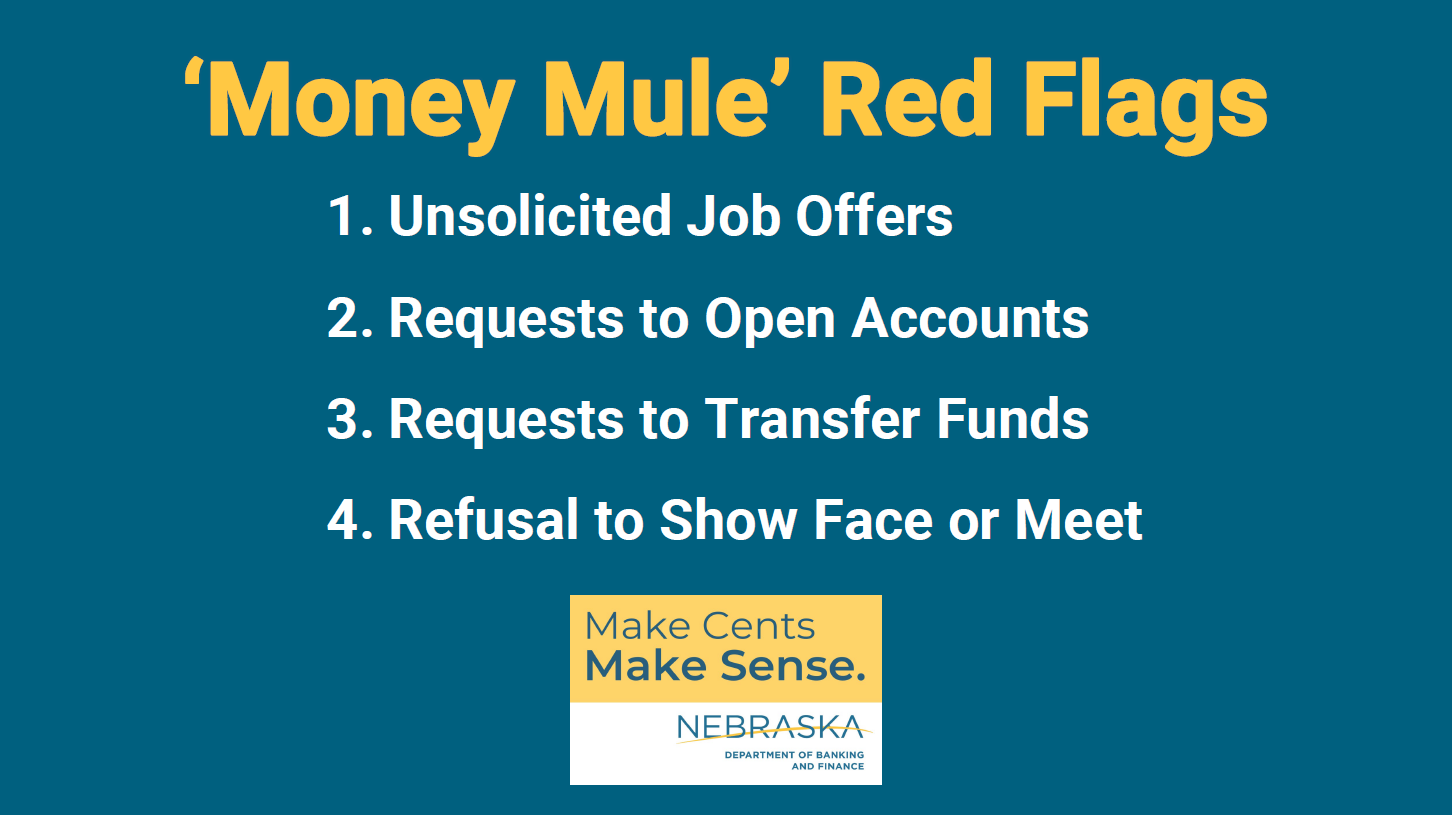
According to the FBI, a "money mule" is someone who, knowingly or unknowingly, helps criminals launder money.
Criminals recruit money mules to help conduct online scams, fraud, or crimes like human trafficking and drug trafficking. This adds layers of distance between crime victims and criminals, making it difficult for law enforcement to accurately trace money trails.
Watch this short interview with Nebraska Department of Banking Finance staff for an overview on money mules and the role they play in financial scams.
How Money Mules Work
Money mules receive money, often through their own bank accounts, and then transfer it to another account – typically overseas – or withdraw the cash before handing it to someone else.
Beyond their own bank accounts, money mules can move funds in various other ways, including via cashier’s checks, digital wallets, crypto currency, prepaid debit cards, or money service businesses.
Money mules often receive a commission for their services. They may be providing assistance because they believe they have a trusting or romantic relationship with the individual who is asking for help.
Some money mules know they are supporting criminal enterprises; others are unaware they are helping criminals gain a profit. Either way, money mules are taking an active part in a crime and could be held liable.
Bottom line: If you are moving money at the direction of another person, you may be serving as a money mule.
Red Flags
Warning signs of money mule scams may include one or more of the following:
-
Unsolicited Job Offers: Be wary of job offers that come out of the blue, promising easy money with little or no effort. Be wary of “employers” that are communicating with email services such as Gmail, Yahoo, Hotmail, Outlook, etc., or send you an unsolicited text message.
- Web-Based Communication: Scammers often communicate through web-based applications like WhatsApp, Telegram, etc.
- Requests to Open Accounts: Watch out for requests to open a bank account in your name, or in the name of a company you form to receive and transfer money.
- Vague Job Descriptions: If the job duties are unclear or lack specific details, it could be a red flag.
- Requests to Transfer Funds: Be cautious of requests to receive funds and then "process" or "transfer" them via wire transfer, ACH, mail, or money service businesses such as Western Union or MoneyGram.
- Keeping Amounts of What You Transfer: If you are allowed to keep a portion of the money you transfer, it could be a sign of a scam.
- Unusual Requests: Be wary of requests that seem unusual or suspicious, especially those involving money transfers.
- Online Romance Scams: Scammers may also build fake romantic relationships to pressure people into an illegal money transfer. Dating and social media apps may be used.
- Cryptocurrency Kiosks: If you are directed to deposit cash into one or more cryptocurrency kiosks, this is a clear sign of a scam.
- Poorly Written Communications: Watch out for communications that are poorly written and include spelling mistakes and grammatical errors.
- Refusal to Show Face: If someone refuses to show their face, it's a red flag.
If you suspect a money mule scam, contact the Nebraska Department of Banking and Finance at (402) 471-2171 or file an online complaint.
